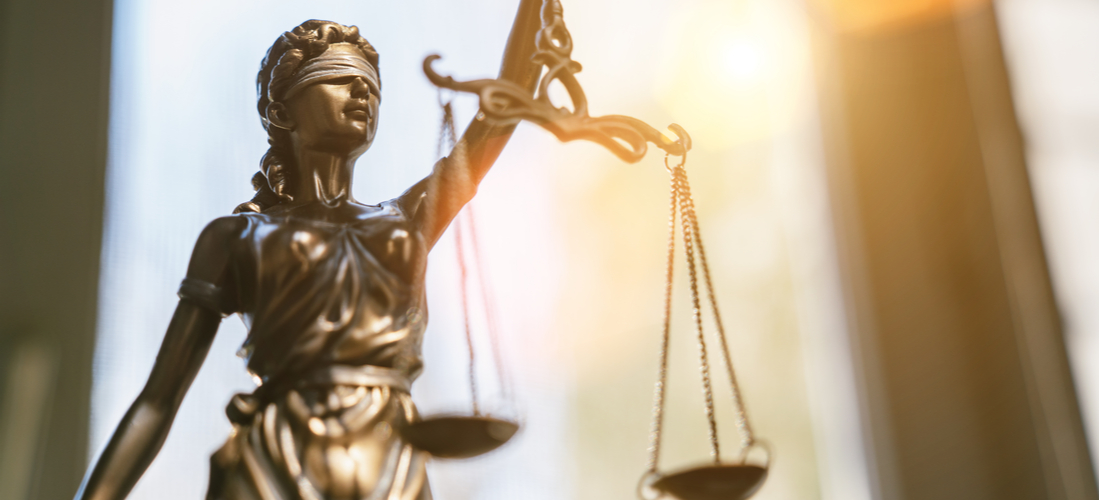In this article we take a look at how a caveat functions in the legal framework.
Introduction
It is a tool or a means to warn another party with regards to matters of legal importance. All matters before courts are governed by the two basic principles of natural justice, which are the right to be judged without bias and the right to be heard in a public forum before being judged.
So naturally all the procedures and formalities of the court, which have been laid down in the Civil Procedures Code (CPC), are also governed by these principles.
Section 148a of the CPC covers the lodging of a caveat. And this provision has been made to directly address the principle of right to be heard, and is represented by the latin legal maxim ‘Audi alteram partem’, ‘meaning right to hear the other party.’ Section 148a (1) states:
This means that a Caveat Petition can be lodged by a person who believes that he or she has a right to be present before the court at the hearing of a case that is ongoing or a case that will be filed soon. But what gives a person the right to be present in the hearing of an application in a case?
There are two circumstances under which a person has the right to be present at the hearing of an application.
- If a person is about to be named as a party to the application in a suit that is ongoing or a suit that is about to be filed.
- The person will be affected by the order or the ruling on the application may be filed in a suit that is ongoing or a suit that is likely to be filed.
If a person believes that they fit in any of these categories they may file a caveat petition. But how does a caveat work? Let’s find out.
How Does a Caveat Petition Work?
The caveat petition, as discussed before, is a tool to enable a person’s right to be present and to be heard at a hearing of an application in a suit or a case that is ongoing or is imminent if the person believes that he or she may be named in the application or may be affected by the ruling on the application. But what does that caveat exactly do?
In a caveat, a petition, a person basically informs the court that they are anticipating being a direct or indirect party to a case that is ongoing or is imminent and would wish to be present and be heard, if necessary at the hearing.
Once the petition has been filed, it is the responsibility of the court to keep a lookout for the matter anticipated in the caveat petition and in the event that the matter anticipated in the caveat actually materialises, the court must notify the caveator, the person who files the caveat, regarding the hearing along with the date and time of the hearing. The caveator can then appear at the hearing and can have his or her day in the court before the judge passes his or her ruling. Now it is not like a caveat is the only way to be heard in the court. Or it is not like you cannot be heard in court without a caveat. But when it comes to legal matters, one can never say when you may or may not be summoned to the court. So if a person has early knowledge of such an occurrence, that he or she may become a party to a case or suit, then a caveat helps capitalise on that foresight and helps avoid a lot of wastage of time, effort and money for both, the caveator as well as the court. Because without a caveat, a party will not know of the hearing and will not be present at the hearing. The ruling will be passed without the presence of the party.
Then the party will be notified asking if they have anything to say, and a different hearing date will be allotted. If the party is not directly named in the application but is affected by the ruling then he or she will have to file a separate petition challenging the ruling. Then the court will allot a date for the hearing and if the court accepts your plea then the other party will be given time to respond. Once the other party responds again another date will be granted for a hearing. This can cause a lot of inconvenience in terms of time, effort and cost. A caveat saves the trouble of all of that.
How Does One File a Caveat
To file a caveat petition, the first step, of course, is to draft the caveat. The caveat must contain the following information.
- Details of the court in which the caveat is being filed
- Case / Suit number pertaining to which the caveat is being filed, in case the caveat is being filed with regards to a case that is ongoing
- Summary of the case and how it might affect the caveator in case the caveat is being filed with regards to a case that may be imminent.
- Name of the caveator
- Address of the caveator where the notice of the caveat should be served
- Name of the prospective plaintiff
- Address at which the notice of the caveat is served to the prospective plaintiff
After the petition has been filed, the petition must be submitted in court with the relevant court fees and the following documents.
Index Application to file caveat signed by Advocate On Record (aor) containing: Cause title and case number Name of the court appealed from Date of impugned judgment Designation of the authorityParticulars of the order etc. Court fees (applicable in civil matters) Vakalatnama and memo of appearance Memo of parties.
Once these have been filed, the party that has been named in the caveat has to be sent a notice. On completing all these formalities, the court will then notify the caveator that the caveat is active and will be so for a period of 90 days. Once the period of 90 days expires, the court will stop servicing the caveat. If the caveator wishes the court to continue servicing the caveat, then he has to file a fresh petition along with the documents and court fees again.
Conclusion:
As it can be evidenced from above, filing a caveat is a matter that requires some level of legal proficiency and a fair knowledge of how court procedures work. So when it comes to matters of civil procedure code, it is always prudent to consult a legal expert who has not only studied these court procedures as a subject matter but also has ground-level experience at handling these matters. If you are looking for some assistance regarding any civil matter or have some queries regarding the CPC, get in touch with Vakilsearch today and we will connect you to our team of legal experts who will assist you with your requirements.
Read more:-









